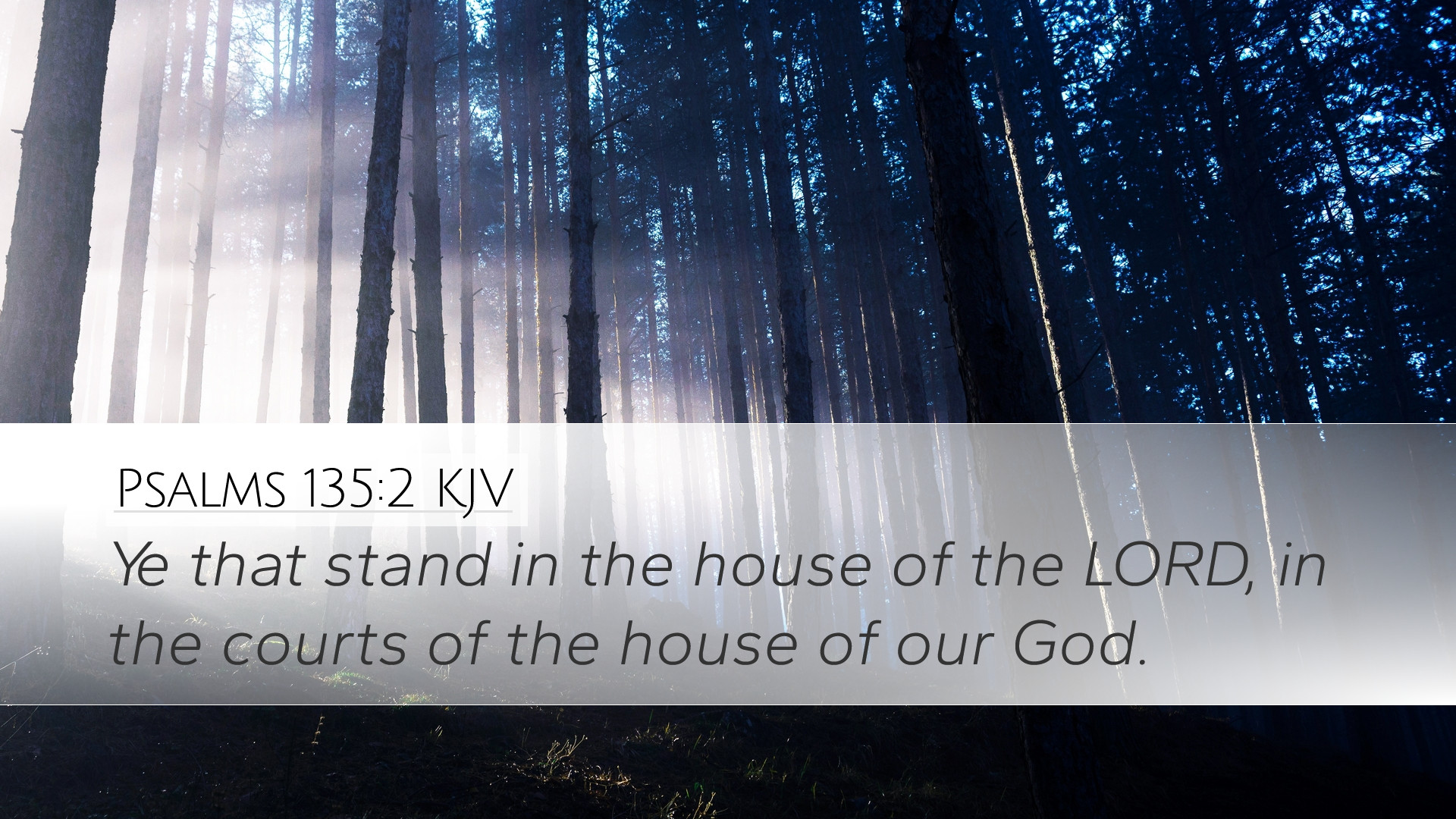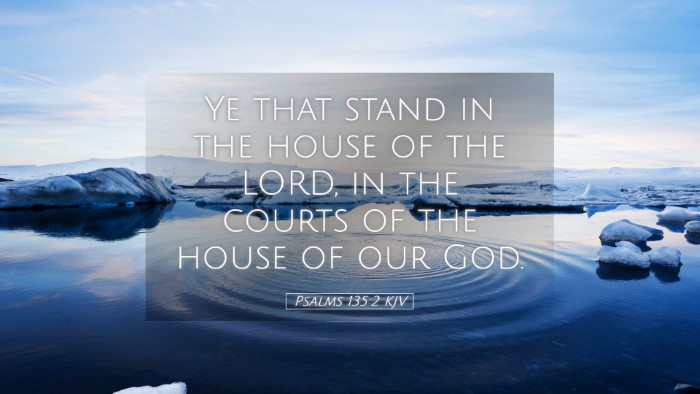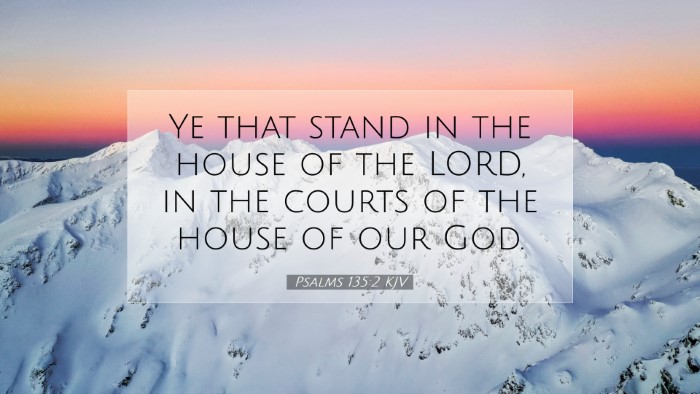Psalms 135:2 Commentary
Psalms 135:2 states: "You who stand in the house of the LORD, in the courts of the house of our God." This verse encapsulates a profound invitation and instruction to worship and glorify God within the sacred spaces He has established.
Contextual Overview
The Book of Psalms is a collection of hymns and prayers that express the full range of human emotion and spiritual experience. Psalm 135 is part of a series of psalms praising God's sovereignty and His chosen people. It emphasizes the importance of the Temple as a place of worship, reflecting on the relationship between God and His people.
Insights from Matthew Henry
According to Matthew Henry, the phrase “You who stand in the house of the LORD” highlights the privilege and responsibility of those who serve in the Temple. He elaborates on the significance of the Temple as a dwelling place of God’s presence, suggesting that worship should be both a duty and a joy for the faithful.
-
The Role of Worship: Henry points out that standing in the house of the Lord symbolizes readiness and dedication to worship. This act of standing denotes both physical and spiritual vigilance, encouraging believers to maintain a posture of reverence.
-
Community of Worship: He also emphasizes that this verse calls upon a collective engagement. It is not merely individual worship but a community calling to gather and exalt the Lord together.
Insights from Albert Barnes
Albert Barnes’ commentary provides further clarity by discussing the historical context of the Psalm. He notes that this Psalm was likely addressed to the exiles who were returning to Jerusalem, thus reaffirming their identity and duty to worship in the Temple.
-
Significance of the Courts: Barnes elaborates on the distinction between the Temple itself and its courts. The courts served as an accessible space for worship and sacrifice, symbolizing the approachability of God to His people.
-
Divine Invitation: Barnes interprets the phrase as a divine invitation to fellowship with God. He emphasizes that entering and standing in the house of the Lord is both a privilege offered to believers and a call to partake in divine communion.
Insights from Adam Clarke
Adam Clarke’s insights add depth to the understanding of ritual and liturgical practice. He highlights the structured nature of worship found in the Temple and how this verse signifies the orderliness that accompanies proper worship.
-
Cultic Practice: Clarke notes the importance of ceremonial aspects in worship, detailing how standing in the courts was part of a larger ritual that involved sacrifice, offerings, and prayers, representing a complete giving of oneself to God.
-
Call to Action: He points out that this verse serves as a direct call to action for the faithful. The act of standing is not passive; it involves an active participation in the worship life of the community.
Theological Reflections
The theological significance of Psalm 135:2 extends beyond its immediate context. It prompts readers to reflect on the nature of worship, community, and the presence of God. This verse encourages believers to recognize the importance of being present in the places of worship, acknowledging that God’s presence is transformative.
-
Presence of God: The emphasis on standing in the house of the Lord signifies awareness of divine presence and the reverence that should accompany it. Understanding God's omnipresence leads to a deeper appreciation of His specific presence in worship.
-
Community in Worship: The communal aspect of worship signifies the body of Christ and reminds congregants that they are part of a larger family. This calls for unity and collective engagement in honoring God.
Practical Applications
For pastors, theologians, and Bible scholars, Psalm 135:2 serves as a focal point for teaching about worship and community. Practical applications can be drawn from this verse to enhance worship practices within the church.
-
Encouraging Community Worship: Church leaders should promote gathering for worship as an act of thanksgiving and celebration of God's faithfulness. This fosters the belief that worship is communal, enhancing the church's sense of belonging.
-
Developing a Conviction for Worship: Emphasizing the importance of being present in worship can lead to a stronger sense of devotion among congregants. It encourages them to participate wholeheartedly in the life of the church.
Conclusion
In conclusion, Psalm 135:2 serves as a potent reminder of the call to worship within the community of believers. Through the insights provided by various commentators, the text invites reflection on the nature of worship, the presence of God, and the active participation required from those who come before Him. The teachings derived from this verse not only enrich individual understanding but also enhance corporate worship, establishing a framework for engagement with the Divine.


